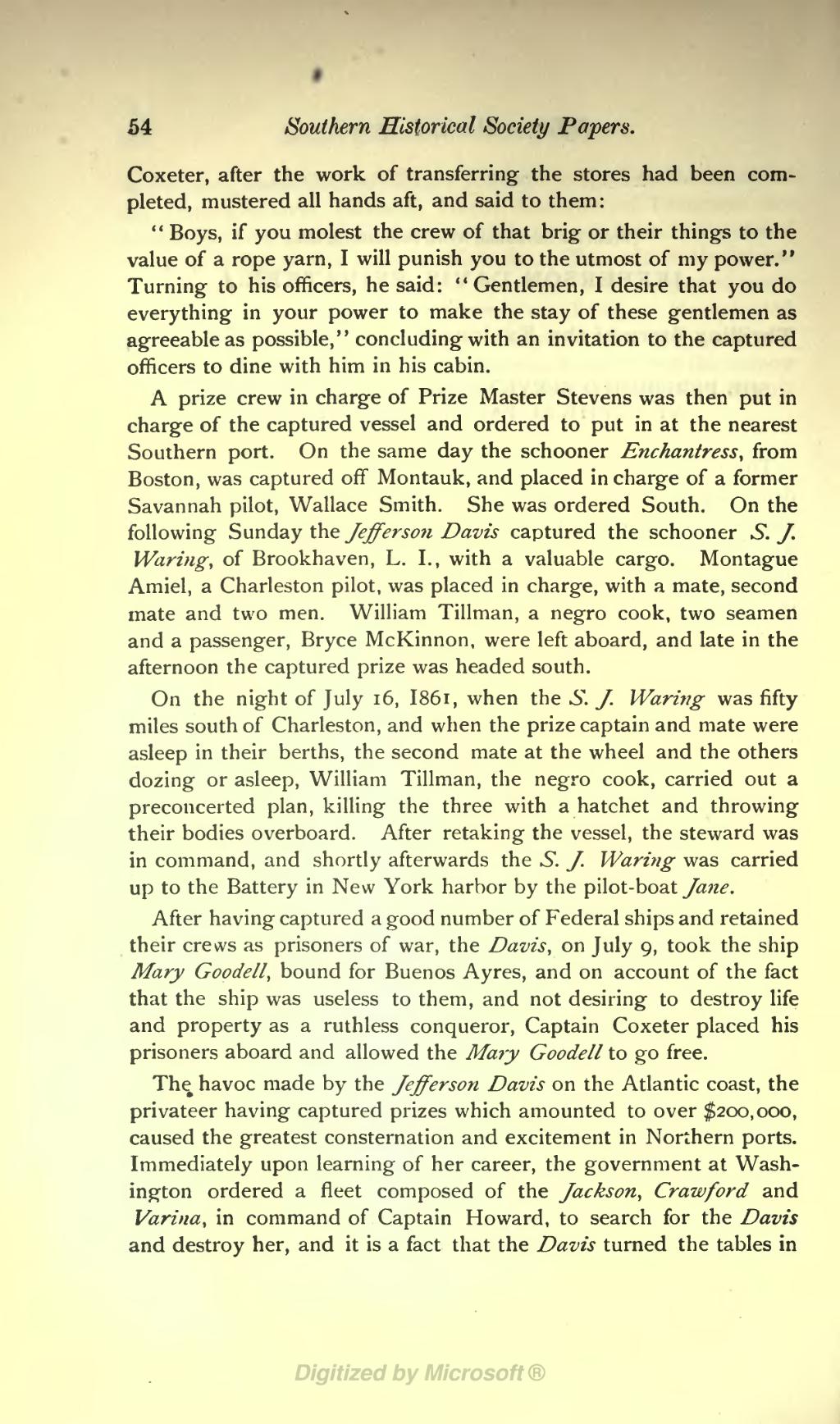54 Southern Historical Society Papers.
Coxeter, after the work of transferring the stores had been com- pleted, mustered all hands aft, and said to them:
" Boys, if you molest the crew of that brig or their things to the value of a rope yarn, I will punish you to the utmost of my power." Turning to his officers, he said: "Gentlemen, I desire that you do everything in your power to make the stay of these gentlemen as agreeable as possible," concluding with an invitation to the captured officers to dine with him in his cabin.
A prize crew in charge of Prize Master Stevens was then put in charge of the captured vessel and ordered to put in at the nearest Southern port. On the same day the schooner Enchantress, from Boston, was captured off Montauk, and placed in charge of a former Savannah pilot, Wallace Smith. She was ordered South. On the following Sunday the Jefferson Davis captured the schooner 6*. /. Waring, of Brookhaven, L. I., with a valuable cargo. Montague Amiel, a Charleston pilot, was placed in charge, with a mate, second mate and two men. William Tillman, a negro cook, two seamen and a passenger, Bryce McKinnon, were left aboard, and late in the afternoon the captured prize was headed south.
On the night of July 16, I86i, when the S. J. Waring was fifty miles south of Charleston, and when the prize captain and mate were asleep in their berths, the second mate at the wheel and the others dozing or asleep, William Tillman, the negro cook, carried out a preconcerted plan, killing the three with a hatchet and throwing their bodies overboard. After retaking the vessel, the steward was in command, and shortly afterwards the ,S. J. Waring was carried up to the Battery in New York harbor by the pilot-boat Jane.
After having captured a good number of Federal ships and retained their crews as prisoners of war, the Davis, on July 9, took the ship Mary Goodell, bound for Buenos Ayres, and on account of the fact that the ship was useless to them, and not desiring to destroy life and property as a ruthless conqueror, Captain Coxeter placed his prisoners aboard and allowed the Mary Goodell to go free.
The^ havoc made by the Jefferson Davis on the Atlantic coast, the privateer having captured prizes which amounted to over $200,000, caused the greatest consternation and excitement in Northern ports. Immediately upon learning of her career, the government at Wash- ington ordered a fleet composed of the Jackson, Crawford and Varina, in command of Captain Howard, to search for the Davis and destroy her, and it is a fact that the Davis turned the tables in
